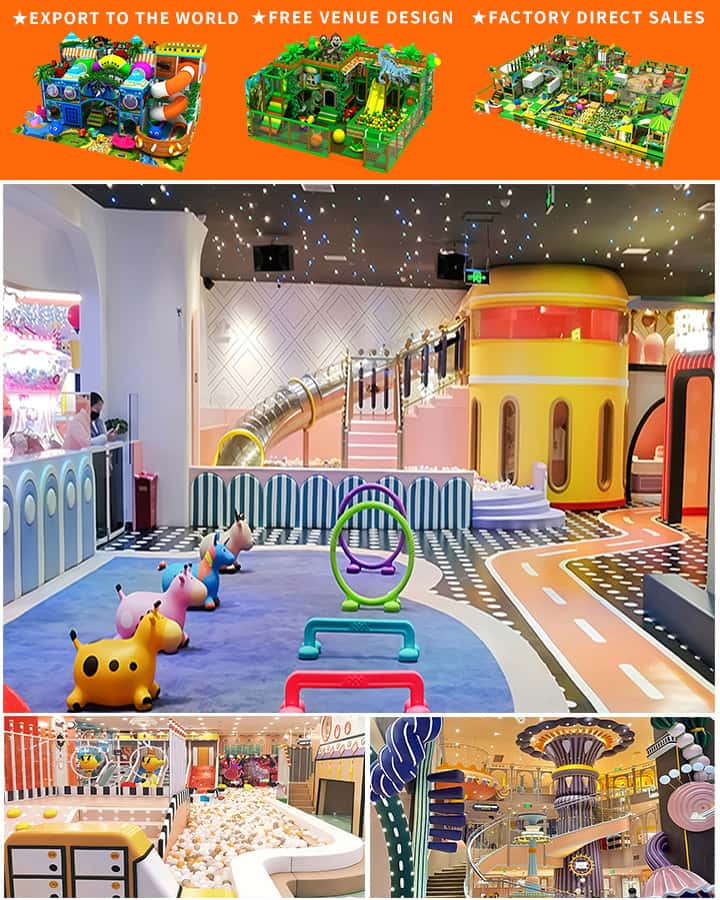Kids’ playgrounds are magical places where laughter echoes, and the spirit of adventure thrives. These vibrant spaces, filled with swings, slides, and climbing frames, offer children more than just a venue for play; they provide an essential environment for physical, social, and cognitive development. The myriad of games played in these settings is crucial in fostering growth and learning. Let’s explore some classic and innovative kids’ playground games that bring joy and development to young minds and bodies.
Classic Playground Games: Timeless Fun for All Ages
Tag: Perhaps one of the most universally recognized playground games, tag requires minimal equipment—just an open space and a group of eager players. It helps improve agility, speed, and coordination while teaching kids about strategy and teamwork. Variations like “freeze tag” and “shadow tag” add layers of excitement and inclusivity.
Hide and Seek: This timeless game never goes out of fashion. Children take turns hiding while one ‘it’ counts to a designated number and seeks. Hide and seek encourages creativity, problem-solving, and understanding spatial relationships. It’s also excellent for developing patience and turn-taking skills.
Hopscotch: Drawing a hopscotch grid on the pavement can lead to hours of entertainment. This game enhances balance, coordination, and rhythm as children hop through the numbered squares. Hopscotch can be adapted to include educational elements, such as incorporating math problems or spelling words within the squares.

Innovative Playground Games: Modern Twists on Classic Fun
Obstacle Courses: Designing an obstacle course using playground equipment like monkey bars, seesaws, and tunnels can turn any day into an exhilarating adventure. Obstacle courses promote gross motor skills, endurance, and perseverance. They also encourage imaginative play as children navigate their way through various challenges.
Treasure Hunt: Organizing a treasure hunt introduces an element of mystery and exploration. Creating clues and hiding small ‘treasures’ around the playground engages children in critical thinking and following sequences. This game can also be themed around stories or educational concepts, adding an extra layer of learning.
Parachute Play: Playing with a large parachute involves lifting it up and down while singing songs or playing games underneath it. This activity fosters cooperation, rhythm, and sensory experience. Parachute games can also be used for simple exercises, enhancing motor skills and body awareness while promoting group cohesion.
Educational Playground Games: Learning Through Play
Alphabet Scavenger Hunt: Combine learning with physical activity by organizing an alphabet scavenger hunt. Assign each letter of the alphabet to different objects or areas within the playground. Kids must find items that correspond to each letter, integrating literacy skills with movement.
Nature Bingo: Create bingo cards featuring images of natural elements found around the playground, such as leaves, rocks, or flowers. As children explore the environment, they search for these items, marking off their cards. Nature bingo encourages observation, environmental awareness, and outdoor exploration.
Math Relay Races: Design relay races that incorporate basic math problems. Each station could have a different mathematical challenge that teams must solve before moving to the next. This game makes math fun and interactive, reinforcing numerical concepts through physical activity and teamwork.
Conclusion: A World of Possibilities on the Playground
Playground games are more than just pastimes; they are instrumental in shaping young minds and bodies. Whether through classic games that have stood the test of time or innovative activities that add new dimensions to play, playgrounds offer endless opportunities for growth, learning, and fun. So, let the kids run wild, explore their creativity, and build lasting memories—all while developing crucial life skills in the joyful embrace of the playground.




